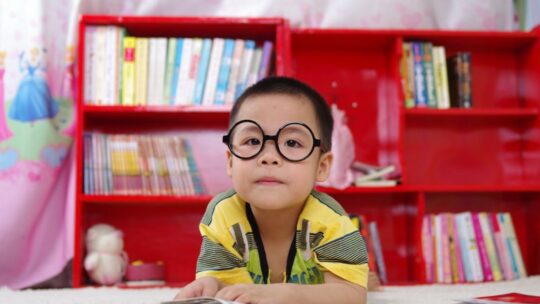
Bilingual nurseries can give children a head start in early learning, especially in a country like Luxembourg. That’s because as they grow up in a country where multiple languages are spoken daily, children can learn these languages while interacting with others. Not only does this teach kids stronger social skills, but it also helps their brains retain and juggle different information.
An early bilingual foundation is one of the most valuable gifts you (and your chosen nursery) can give to your child. Register your child in a bilingual nursery today, and you’ll discover the benefits as they progress through school.
The Advantages of Growing up in Luxembourg
Because Luxembourg is a multilingual country, children hear different languages everywhere they go. They may use one language at home, learn another at nursery, and hear another in public spaces. This may sound scary for adults, but it’s an excellent opportunity for kids to pick up the language while their brains are still developing.
But being bilingual means more than just speaking another language. It also gives children a chance to befriend others easily and learn about their cultures. Children who can speak or understand multiple languages usually find it easier to connect with someone, whether it’s with a classmate, a relative, or even with people they’ve just met.
Bilingualism also helps children develop stronger learning skills. Studies show that bilingual children often have better problem-solving skills and stronger memory, which could give them an edge in school. Learning more languages in the future also becomes easier, giving them better career opportunities later in life.
Addressing Some Concerns About Being Bilingual
Here are some common misconceptions about raising bilingual children and how it might affect their development:
- “Doesn’t it delay their development if they’re learning multiple languages?”
No, their development won’t be delayed. Although their development might look slightly different (as they apply what they know using multiple languages instead of just one), they will still reach their milestones on time. - “Won’t they get confused?”
Children’s brains are predisposed to learn languages easily. The occasional mixing of words (also known as “code switching”) is proof that their brain is actively working by using a word from one language to complete a sentence in another. - “Will one language always be weaker?”
A child’s “stronger” language depends on how often they hear and use the language. It’s normal for them to use one predominantly, but only have partial mastery of the other. - “Do I need to be a native speaker?”
No, you don’t need to be a native speaker. Even if you don’t know the language that well (or at all), you can still help your child learn by doing small language-based activities with them. The nursery can also help them practice the language with daily exposure.
How Nurseries Support Language Development
The nursery you choose can make a huge difference in how your child learns and retains a language.

Most nurseries take a play-based approach to help kids learn better. Instead of giving formal lessons, they reinforce learning through activities like singing songs, reading books, listening to stories, and daily interactions with other kids.
When you visit a nursery, consider asking them the following questions:
- What language(s) will be used daily? Will there be a periodic “rotation” of languages, and if so, which ones and how often?
- How will staff help children who don’t speak the language yet?
- Are the activities designed to help make language learning playful and natural?
- How does the nursery make sure my child is learning while keeping his needs and comfort in mind?
Invest in Your Child’s Future Today
Nurseries aren’t just places where your child spends the day while you work. They’re your partners in your child’s growth, so you want to make sure your child gets the best start as early as possible. And that means registering your child in a bilingual nursery, so you can give them a head start while their brains are still developing.
Visit a bilingual nursery today to see how being bilingual can give your child an early advantage in life. The earlier you start their language journey (and the better the support), the more opportunities they have to succeed in school and in their careers.


















